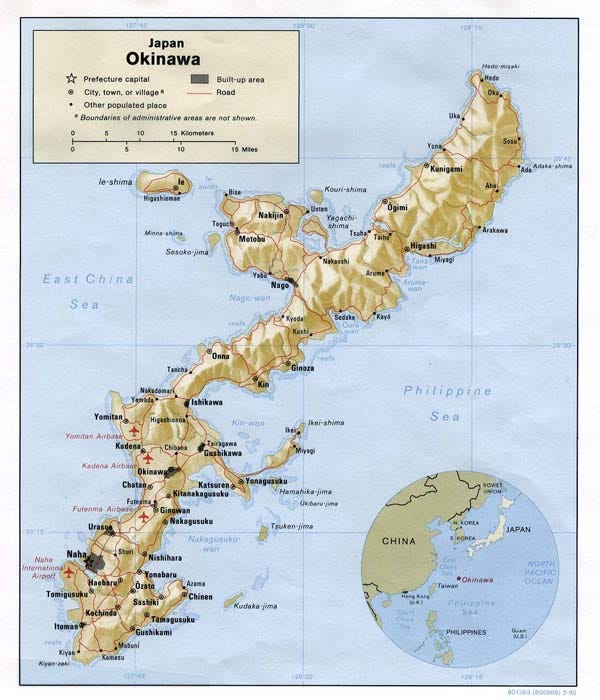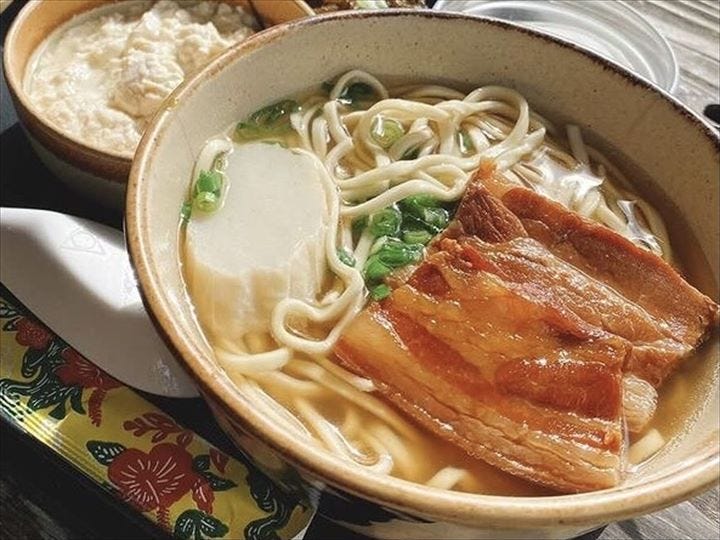The Lie about the Long Lived Japanese People
What you've heard about the Okinawan diet is mostly bullshit
The people of Japan’s beautiful Okinawa are claimed to be the longest lived people in the world. Okinawa was well known at one point for having the highest average lifespan and the most centenarians.
Here is their diet.
…Wait a minute, does anything seem weird about this to you?
The traditional diet of the people of the ISLAND of Okinawa are apparently only getting 1% of their calories from fish.
Did Okinawans live long because they ate a protein-deficient, sweet potato based diet?
In 1945, the bloodiest battle of the pacific took place in Okinawa, Japan. A third of the population died and due to widespread destruction which included destruction of the food supplies, a huge number of civilians were left starving and struggled to scrape together an adequate diet after the war. Without much else to eat, many Okinawans relied on a resilient crop for calories - sweet potatoes.
74 years later in 2019, a BBC article came out titled A high-carb diet may explain why Okinawans live so long. The article was based on a 2016 study that explained that various experiments found a low protein high carb diet to make lab animals live longer. They claim the Okinawans likely lived so long because the carbohydrate content of their diet was 10 times the protein content, which is a remarkably similar ratio to that of the long-living lab animals. They call this 10:1 carbs to protein ratio the ‘Okinawan ratio.’
As someone who has been to many Okinawan restaurants in Tokyo as well as restaurants in Okinawa that offer up all sorts of pork dishes including pig feet and pig ears, this characterization of the diet didn’t make sense to me.
Here’s the thing - those researchers deduced the composition of the Okinawan diet based on a single snapshot in time - a data point from 1949. This was only 4 years after the war, which left Okinawans with barely anything to eat except sweet potatoes. I’ve heard this ‘Okinawans eat tons of purple sweet potatoes’ narrative on multiple occasions, usually in support of a plant-based diet. Michael Greger, who is usually the go-to guy for pro-vegan data, presents the narrative in this video of his.
“…but a more accurate representation would be this. If you look at their actual dietary intake, we know what they’re eating from the U.S. National Archives because the U.S. military ran Okinawa… and if you look at the traditional diets of more than 2000 Okinawans, this is how it breaks down. Only 1% of their diet was fish. Less than 1% of their diet was meat and same with eggs and dairy. So it was more than 96% plant-based. …The Okinawan diet was centered about purple and orange sweet potatoes. How delicious is that?”
By definition, centenarians live to be over 100 years old. Are we to expect that they ate the same diet for 100 straight years? Or even say 60 years? Further, should we expect that they would decide to stick to a paltry sweet potato diet that was a product of the destruction of the war?
At one point while I was studying at a Japanese University, I ran out of money and was on a shoestring budget until the the next scholarship payment came in. I tried to find foods that provided plenty of protein and calories for cheap. For 3 days my diet was basically a big carton of milk and a big bag of shelled peanuts. If those same researchers happened upon me at that particular time, maybe there would be a BBC article titled A High-Peanut, High-Milk diet may explain this Youtuber’s success.
As I’ve already discussed in another Substack, a low-protein diet really is not a recipe for a long-lived life. In fact, the elderly need much more protein and amino acids than younger people. Several negative health consequences come from the sarcopenia (muscle wasting) as they experience as they get older, and to top it off, it is much harder for them to build muscle because their muscles develop anabolic resistance, and their gut isn’t as effective at digesting protein. So, animal proteins should be prioritized as they are considered “high quality” proteins because they have more essential amino acids and are more easily digested than plant proteins.
Bryan Johnson, the so-called ‘rejuvenation athlete’ who is spending millions of dollars to try and live long as possible, apparently does not subscribe to this frailty-inducing ‘Okinawan ratio.’ His carb to protein ratio of about 3:2 is nothing like the so-called Okinawan ratio of 10:1.
As discussed before, the idea behind lowering protein intake is to lower mTOR activation so you can live longer. But again, tons of things activate mTOR. Those purple sweet potatoes are surely activating mTOR because carbohydrates activate mTOR. It’s well known that mTOR is activated by insulin, which is secreted when you eat carbohydrate. Leucine is one of the amino acids said activate mTOR, but according to this paper, insulin activates mTOR at least as much as leucine. On that note, Bryan Johnson supplements every morning with the specific amino acids Dr. David Sinclair says would need to be limited to make you live longer by preventing mTOR activation.
So here’s the thing about the Okinawan centenarians - it’s very doubtful that their diet throughout their life revolved around sweet potatoes except for the few years right after the war when they were still struggling to get enough to eat. As the Okinawan prefectural website says: “Okinawan food begins and ends with pork.” Go to any Okinawan restaurant and it will be filled with pork dishes, including things like pig ears and pig feet.
Keep reading with a 7-day free trial
Subscribe to Joseph Everett’s WIL Newsletter to keep reading this post and get 7 days of free access to the full post archives.












